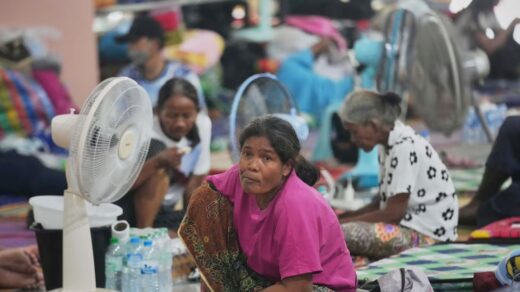
The tragic murder of Himani Narwal, a 22-year-old staff member of the Indian National Congress (INC), has shocked the nation. Her body was found in a suitcase near a bus stop on the Rohtak-Delhi highway, a disturbing discovery that has captured public attention. The arrest of the main suspect, Sachin alias Dhillu, a phone shop owner and a Facebook acquaintance of Narwal, has added layers of complexity to this already distressing case. According to the police, Sachin allegedly strangled Himani after a heated argument over money, leading to her untimely death.
Himani Narwal was an emerging political worker with the INC, actively involved in grassroots initiatives and contributing to the party’s outreach efforts. Her commitment to political activism and her participation in local projects had made her a well-known figure among her colleagues and within the community. This tragic event not only underscores a case of personal violence but also raises significant concerns about the safety and security of young political workers, particularly women, who navigate both public and online spaces.
The police investigation has uncovered important details regarding the events leading up to Narwal’s murder. Himani and Sachin were reportedly acquainted through social media, with their interactions gradually transitioning from online to in-person. It has been suggested that financial disputes between them escalated into an argument, which turned violent. CCTV footage played a crucial role in the investigation, showing Sachin transporting the suitcase containing Himani’s body, which ultimately led to his quick arrest.
From a legal standpoint, Sachin faces charges under several sections of the Indian Penal Code (IPC), notably Section 302 (punishment for murder) and Section 201 (causing disappearance of evidence or providing false information to shield the offender). These allegations underscore the seriousness of the crime and set the stage for the upcoming judicial process. The investigation may also consider the possibility of premeditation, which could influence the severity of the charges and the resulting penalties.
This case highlights the pressing need to tackle gender-based violence and the misuse of social media for criminal activities.
In recent years, India has seen a troubling increase in incidents where online interactions have turned into real-life violence. The Protection of Women from Domestic Violence Act, 2005, along with the amendments to the IPC following the Nirbhaya case in 2013, aims to provide stronger legal safeguards for women against various forms of violence. However, the Himani Narwal case reveals the ongoing gaps in ensuring women’s safety, both in political arenas and their personal lives.
Additionally, it raises important questions about the safety of women in public roles, including politics. The INC and other political parties have frequently advocated for empowering women and enhancing their involvement in politics. Nevertheless, events like this bring to light serious concerns regarding whether sufficient security measures are in place to protect young political workers from threats and violence.
The public outcry following Narwal’s murder highlights the widespread frustration over ongoing violence against women. Social media has played a complex role in this situation—while it was reportedly the means through which Himani and Sachin connected, it has also become the platform for growing demands for justice. Hashtags calling for prompt legal action and honoring Himani have surged on Twitter and Instagram, showcasing the impact of digital activism.
Political leaders, activists, and citizens have all called on law enforcement to carry out a thorough and transparent investigation. The INC has expressed sorrow over Himani’s death, denouncing the violence and vowing to advocate for stricter measures to protect their members. Furthermore, women’s rights organizations have stressed the importance of systemic reforms that tackle the underlying causes of gender-based violence and ensure timely justice for victims.
As the investigation progresses, the emphasis remains not only on achieving justice for Himani Narwal but also on preventing similar incidents in the future. Enhancing legal protections, improving public safety measures, and promoting a culture of respect and equality are essential steps toward creating a society where women can pursue their careers and passions without fear.
Himani’s death serves as a powerful reminder of the threats that exist in both online and offline environments. It emphasizes the need for a united response—from the government, political parties, law enforcement, and society as a whole—to foster a safer and more equitable world for everyone. Achieving justice for Himani Narwal goes beyond simply punishing her murderer; it involves making sure that her life and contributions lead to meaningful change.
Written by Ratisha Khare


